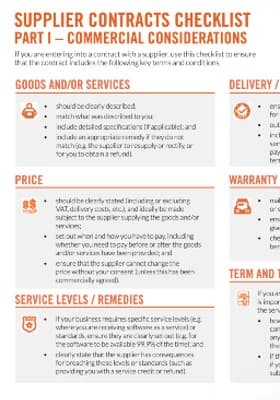Table of Contents
Software licensing agreements are complex documents requiring careful attention to detail and considering various technical risks. There are a range of legal and practical issues to consider in these agreements, such as protecting the software owner’s intellectual property rights when licensing their software to third parties. This article will explore some common pitfalls in software licence agreements and how to avoid them.
Why Is Software Licencing Complicated?
Licencing software gives rise to several legal issues and complexities.
For instance, some of the critical issues to consider include:
- determining the correct form of licencing document. There are various ways to license software. For instance, depending on how the software is licenced, is it licenced on a site or per-user basis? Is it licenced as a service through the Internet?
- there are several legal considerations spanning different areas of law. For instance, a licence agreement will typically require consideration of several critical areas of law, including intellectual property, contract, and data protection laws; and
- whilst legal issues are paramount, commercial considerations are also crucial. Licence agreements must be user-friendly and accessible, mainly when offered on a one-to-many and non-negotiable basis. This requires a careful balance between necessary terminology and legalese and practical terms that users can understand and will sign efficiently.
What Are Some Common Pitfalls in Software Licencing Agreements?
A business can experience many potential pitfalls in software licence agreements.
Here are some key pitfalls you should avoid:
1. Your Agreement Contains Unclear Language
Your software licencing agreement must contain unambiguous terms.
For instance:
- clear terms around the permitted use of the software. For example, terms explaining the purposes for which the software may be used, the scope of the licence and who is allowed to use the software. Failure to specify clear usage terms can lead to mismatched customer expectations and disputes. Your agreement should also include equally clear restrictions on use. For instance, your terms should expressly state that if the customer cannot sub-license use the software, Without this, your software could end up in the wrong hands of a third-party business that could misuse it and cause loss for your business; and
- clear payment terms are vital. Unclear software licence payment terms can result in significant cash flow problems for your business. For instance, you should include terms specifying how much is payable under the licence, when payments are due and what happens if the customer does not pay. Without clear payment obligations, a customer could fail to pay, resulting in significant losses for your business.
2. Your Agreement Does Not Limit Your Liability
A limitation of liability clause is vital in software licence agreements. Software is often business-critical, and therefore, its failure could result in significant harm to customers. For instance, a customer may lose substantial business opportunities and potential revenue if critical business software experiences downtime.
3. Your Agreement Fails to Address Data Protection Law Requirements
Many software licence agreements require a business to consider the processing of personal data and obligations under the UK General Data Protection Regulation (UK GDPR). For instance, a software licensing business that processes personal data on behalf of customers will need data processing terms in its software licensing agreements.

Download this free Supplier Contracts Checklist to ensure your contracts will meet your business’ needs.
Neglecting mandatory UK GDPR data protection terms in software licence agreements is a critical risk. Failing to include such terms can lead to significant problems, including:
- increased negotiation time and concerns from savvy customers who will entrust their personal data with your business under the agreement;
- potential regulatory enforcement action, such as fines from the UK data protection regulator; and
- loss of trust and reputational damage in a time when protecting personal data is of utmost priority for companies.
As explored above, many potential pitfalls could arise when licencing software. You should seek legal advice if you require support drafting robust agreements to avoid such pitfalls and protect your business. In that case, you can work with an experienced IT lawyer to support your business and prepare agreements.
Continue reading this article below the formCall 0808 196 8584 for urgent assistance.
Otherwise, complete this form and we will contact you within one business day.
Key Takeaways
There are several common yet high-risk pitfalls in the complicated realm of software licensing agreements. Pitfalls include failing to include terms limiting liability and using the incorrect type of agreements, which are not fit for your licencing activities. Investing time into your software licence agreements is vital to avoid these pitfalls and protect your business from risk. If you require support, you can work with an experienced IT lawyer to draft robust and watertight software licence agreements on your behalf.
If you need help with software licence agreements, LegalVision’s experienced IT lawyers can assist as part of our LegalVision membership. For a low monthly fee, you will have unlimited access to lawyers to answer your questions and draft and review your documents. Call us today on 0808 196 8584 or visit our membership page.
We appreciate your feedback – your submission has been successfully received.









